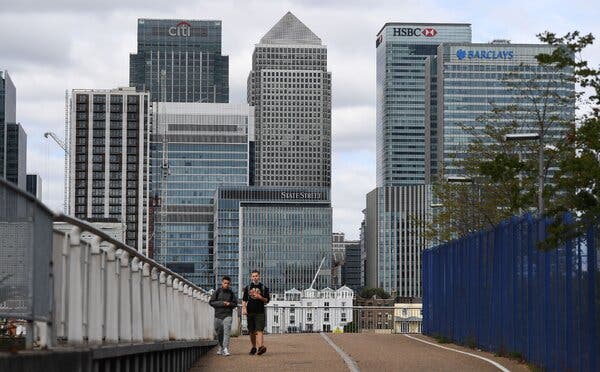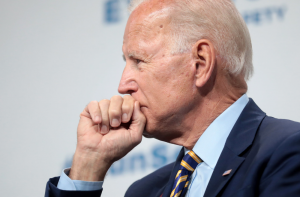The British government has a new message to deliver: It’s safe to return to work.
Starting next week, when schools reopen, the government will begin an ad campaign designed to reassure people that their workplaces have been made safe over the summer and they can return to them with the right health and safety precautions.
“Next week we will showcase the benefits of returning safely to work and raise awareness of companies getting this right,” a government spokesperson said.
The advertisements, to be placed mainly in local and regional media, come amid mounting concern from some business groups that prolonged working from home is seriously harming the economies of town and city centers that rely on commuters.
But many companies don’t want to be seen to be pressuring their employees to return. Recently the British asset management firm Schroders (with about 3,000 employees in Britain) said it would permanently allow flexible working, and the trading company IG (about 750 employees) said none of its staff would be required to return this year, though its office would reopen on Sept. 7.
Across all industries, 40 percent of people said they were working remotely, according to a survey earlier this month by the Office for National Statistics. But in certain sectors — including education, communications and legal services — the share of people working from home jumped to more than three-quarters.
Carolyn Fairbairn, head of the Confederation of British Industry, said that getting people back into offices and workplaces was as essential to the economy as schools reopening. “The costs of office closure are becoming clearer by the day,” she wrote in op-ed published in The Daily Mail on Thursday. “Some of our busiest city centers resemble ghost towns, missing the usual bustle of passing trade.”

The White House wants the Treasury Department to ensure that companies, not workers, will be held liable for paying the employee portion of the payroll tax when President Trump’s tax holiday ends.
The Treasury Department has not been willing to issue such guidance, though it is unclear why. Businesses, which have been fielding questions from their employees about when the tax cuts will begin, would prefer that Congress legislate any changes to tax policy. It is also not clear that the White House would have the legal authority to shift the tax burden in such a manner.
The president’s executive order suspends payments, but employees will be on the hook to pay the deferred taxes back when the tax holiday ends. Many companies are expected to opt out of participating to avoid sticking their employees with a giant bill next year.
The dispute between the White House and the Treasury Department over the guidance was reported earlier by Bloomberg News. A department spokeswoman declined to comment. Judd Deere, a White House spokesman, did not dispute that the Trump administration wanted companies to be liable for the tax but said he would not comment on internal policy deliberations.
The payroll tax suspension plan has been fraught from the beginning. Treasury Secretary Steven Mnuchin was skeptical of the idea and has said participation would be optional. Mr. Trump has said that he will push Congress to make the tax deferral permanent if he is re-elected, but if Democrats retain control of the House of Representatives, more tax cuts are unlikely.

A new kind of corporate consultant has emerged. Their larger goal is to soften cruel capitalism, making space for the soul, and to encourage employees to ask if what they are doing is good in a higher sense, reports Nellie Bowles.
Before the pandemic, these agencies got their footing helping companies with design — refining their products, physical spaces and branding. They also consulted on strategy, workflow and staff management. With digital workers stuck at home since March, a new opportunity has emerged. Employers are finding their workers atomized and agitated, and are looking for guidance to bring them back together. Now the sacred consultants are helping to usher in new rituals for shapeless workdays, and trying to give employees routines that are imbued with meaning.
Ezra Bookman founded Ritualist, which describes itself as “a boutique consultancy transforming companies and communities through the art of ritual,” last year in Brooklyn. He has come up with rituals for small firms for events like the successful completion of a project — or, if one fails, a funeral.
“How do we help people process the grief when a project fails and help them to move on from it?” Mr. Bookman said.
Messages on the start-up’s Instagram feed read like a kind of menu for companies who want to buy operational rites a la carte: “A ritual for purchasing your domain name (aka your little plot of virtual land up in the clouds).” “A ritual for when you get the email from LegalZoom that you’ve been officially registered as an LLC.”



















